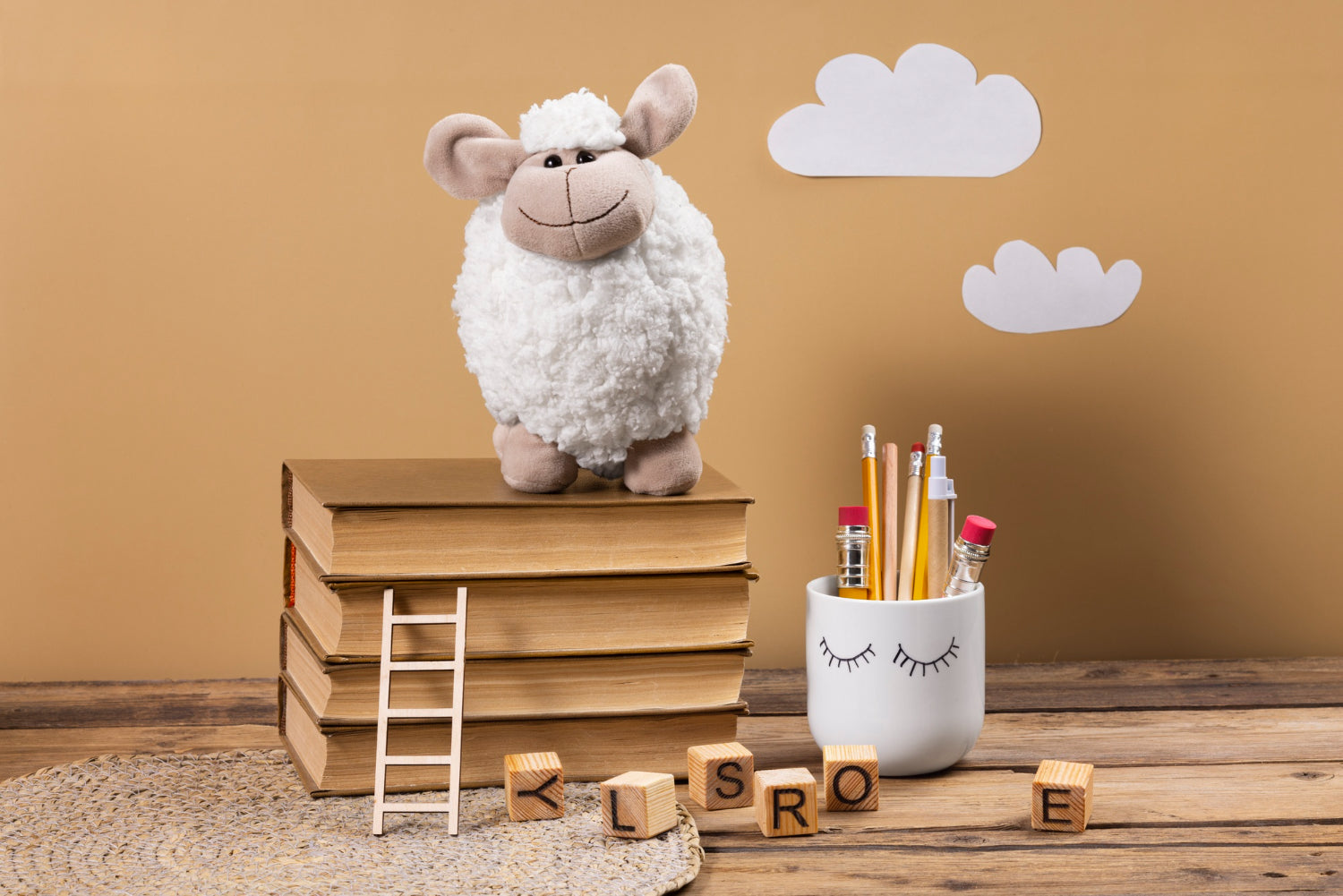1. Introduction
Montessori preschools have gained popularity worldwide for their distinctive approach to early childhood education, rooted in the philosophy and methods developed by Dr. Maria Montessori. These schools prioritize child-centered learning, hands-on exploration, and mixed-age classrooms to foster holistic development and independence in young learners.
Montessori education is often lauded for its potential benefits, which include promoting self-directed learning, nurturing creativity and critical thinking skills, and cultivating a lifelong love of learning. Parents and educators alike are drawn to the emphasis on individualized instruction, respect for the child's autonomy, and the holistic view of child development inherent in the Montessori approach.
However, with these potential benefits come higher costs associated with Montessori preschools compared to traditional early childhood education programs. Tuition fees for Montessori schools tend to be higher due to factors such as specialized materials, trained educators, and low teacher-to-student ratios. Given the significant financial investment required, the purpose of this article is to critically examine whether Montessori preschools truly justify their costs from an objective standpoint.
2. Understanding Montessori Preschools
Montessori preschools are rooted in the groundbreaking work of Dr. Maria Montessori, an Italian physician and educator, who developed her educational philosophy in the early 20th century. Central to Montessori's philosophy is the belief in the innate potential of children and the importance of creating environments that support their natural development.
2.1 Brief History and Philosophy of Montessori Education
Dr. Maria Montessori's educational journey began with her work with children with special needs in Rome, where she developed innovative methods to support their learning and development. Drawing from her observations and insights, Montessori went on to establish the first Casa dei Bambini, or "Children's House," in 1907, which served as the foundation for her educational philosophy.
Montessori's philosophy is grounded in principles of respect for the child, the importance of freedom within limits, and the role of the prepared environment in facilitating learning. She believed that children learn best through hands-on exploration, self-directed activities, and meaningful interactions with their environment.
2.2 Key Principles and Methodologies of Montessori Preschools
Montessori preschools embody several key principles and Montessori method that distinguish them from traditional early childhood education settings:
-
Child-centered learning: Montessori classrooms prioritize the child's interests, needs, and developmental stage, allowing them to guide their own learning experiences. Educators serve as guides and facilitators, providing support and guidance as needed.
-
Mixed-age classrooms: Montessori preschools typically feature mixed-age classrooms, where children of different ages (e.g., 3-6 years old) learn together. This setup fosters collaboration, peer learning, and a sense of community among children.
-
Hands-on materials: Montessori classrooms are equipped with specially designed, hands-on materials that facilitate learning through sensory exploration and manipulation. These materials are carefully selected to promote independence, concentration, and skill development in various areas such as language, mathematics, and practical life activities.
2.3 Comparison with Traditional Preschools and Other Early Childhood Education Approaches
Compared to traditional preschools, Montessori preschools offer a more child-directed approach to learning, with an emphasis on individualized instruction and self-paced progress. Unlike traditional classrooms, where children may spend most of their time in structured activities led by the teacher, Montessori classrooms allow for greater freedom of movement and choice in learning activities.
Montessori education also differs from other early childhood education approaches, such as Reggio Emilia and Waldorf, in its focus on hands-on materials, mixed-age classrooms, and emphasis on individualized learning. While each approach has its unique strengths and principles, Montessori education stands out for its emphasis on fostering independence, creativity, and a love of learning from a young age.
3. Assessing the Costs of Montessori Preschools
Montessori preschools are often associated with higher tuition fees compared to traditional preschools, reflecting various factors that contribute to their higher costs.
3.1 Factors Contributing to Higher Costs
Several factors contribute to the higher costs of Montessori preschools:
-
Specialized materials: Montessori classrooms are equipped with specially designed, hands-on materials that are carefully curated to facilitate learning and skill development. These materials are often made from high-quality, durable materials and require regular maintenance and replenishment.
-
Trained educators: Montessori educators undergo specialized training to become certified Montessori teachers. This training, which emphasizes Montessori philosophy, pedagogy, and classroom management techniques, may require additional time, resources, and investment compared to traditional teacher education programs.
-
Low teacher-to-student ratios: Montessori classrooms typically have lower teacher-to-student ratios compared to traditional preschools, allowing for more individualized attention and support for each child. However, maintaining low ratios requires hiring more educators, which contributes to higher staffing costs.
3.2 Comparison of Tuition Fees
Tuition fees for Montessori preschools vary depending on factors such as location, reputation, facilities, and program offerings. While it is challenging to provide precise figures due to the wide range of variables involved, studies have shown that Montessori preschools tend to have higher tuition fees on average compared to traditional preschools.
A comparative analysis of tuition fees across different regions reveals significant variations. In some areas, the difference in tuition fees between Montessori and traditional preschools may be relatively small, while in others, the gap may be more pronounced, reflecting differences in demand, supply, and local economic factors.
3.3 Consideration of Additional Expenses
In addition to tuition fees, families considering Montessori preschools should also factor in additional expenses such as:
-
Enrollment fees: Many Montessori preschools charge an enrollment or registration fee to cover administrative costs associated with processing applications and securing a child's placement in the program.
-
Materials fees: Some Montessori preschools require families to contribute to the cost of materials used in the classroom, such as art supplies, educational materials, and specialized learning aids.
-
Extended care options: Montessori preschools may offer extended care options, such as before and after-school programs, daycare services, or holiday camps, which incur additional fees beyond regular tuition.
4. Examining the Value Proposition
Montessori preschools are often viewed as offering a unique value proposition in terms of educational quality, child development outcomes, and long-term benefits. In this section, we will critically examine the perceived value of Montessori preschools and review empirical evidence on their effectiveness compared to traditional preschool approaches.
4.1 Analysis of Perceived Value
Montessori preschools are valued for their emphasis on holistic child development, individualized instruction, and fostering a love of learning from a young age. Parents, educators, and experts often cite the following perceived benefits of Montessori education:
-
Educational quality: Montessori preschools are renowned for providing a rich and stimulating learning environment that promotes independence, creativity, and critical thinking skills. The child-centered approach allows children to learn at their own pace and pursue their interests, leading to deeper engagement and understanding.
-
Child development outcomes: Research suggests that children who attend Montessori preschools may exhibit higher levels of social-emotional development, executive functioning skills, and academic achievement compared to their peers in traditional preschool settings. Montessori-educated children are often described as confident, self-motivated learners who approach challenges with resilience and curiosity.
-
Long-term benefits: Proponents of Montessori education argue that the skills and qualities cultivated in Montessori preschools have lifelong implications, contributing to success in school, career, and life. Montessori-educated individuals are believed to possess strong problem-solving abilities, adaptability, and a lifelong love of learning that serves them well in an ever-changing world.
4.2 Review of Research Studies
Empirical research on the effectiveness of Montessori education has yielded mixed findings, with some studies reporting positive outcomes and others finding no significant differences compared to traditional preschool approaches. A comprehensive review of research studies reveals the following insights:
-
Academic achievement: While some studies have found evidence of higher academic achievement among Montessori-educated children, particularly in areas such as mathematics and literacy, other studies have found no significant differences in academic outcomes compared to children in traditional preschools.
-
Social-emotional development: Research suggests that Montessori-educated children may exhibit greater levels of social-emotional competence, including empathy, cooperation, and conflict resolution skills. However, findings vary depending on the measures used and the quality of the Montessori program.
4.3 Insights from Stakeholders
In addition to research evidence, insights from parents, educators, and experts provide valuable perspectives on the tangible and intangible benefits of Montessori preschools. Parents often report seeing their children thrive in Montessori environments, demonstrating increased confidence, independence, and enthusiasm for learning. Educators and experts highlight the value of Montessori principles in fostering a lifelong love of learning and preparing children for success in a rapidly changing world.
5. Exploring Potential Drawbacks and Limitations
Despite the many perceived benefits of Montessori preschools, there are also potential drawbacks and limitations associated with this educational approach. In this section, we will examine some of these concerns and considerations.
5.1 Potential Drawbacks and Criticisms
Montessori preschools have faced criticism and scrutiny on several fronts, including:
-
Limited standardization: One of the criticisms leveled against Montessori education is the lack of standardized curriculum and assessment practices. Critics argue that the variability in program implementation and evaluation makes it challenging to compare outcomes across different Montessori schools and assess the effectiveness of the approach.
-
Variability in program quality: The quality of Montessori preschools can vary widely depending on factors such as teacher training, school leadership, and adherence to Montessori principles. Some critics argue that not all Montessori schools fully embody the philosophy and methodologies advocated by Maria Montessori, leading to inconsistencies in program delivery and outcomes.
-
Concerns about academic readiness: Some parents and educators express concerns that Montessori preschools may not adequately prepare children for academic success in later grades, particularly in subjects such as reading and mathematics. Critics argue that the emphasis on self-directed learning and hands-on exploration may not align with traditional academic standards and expectations.
5.2 Challenges in Implementation
Implementing Montessori principles within contemporary educational systems and cultural contexts presents several challenges, including:
-
Resistance to change: Traditional educational systems may be resistant to adopting Montessori principles due to entrenched beliefs about teaching and learning. Educators and policymakers may be skeptical of alternative approaches and hesitant to deviate from established practices.
-
Lack of resources: Implementing Montessori education effectively requires adequate resources, including trained educators, specialized materials, and supportive infrastructure. However, not all schools or educational institutions have the resources or capacity to implement Montessori principles to their full extent.
-
Cultural barriers: Montessori education may face cultural barriers in certain communities or regions where traditional educational values and practices are deeply entrenched. Cultural norms, parental expectations, and societal attitudes toward education may influence the acceptance and adoption of Montessori principles.
5.3 Consideration of Alternative Models
While Montessori education offers a unique approach to early childhood education, it is not the only model available. Alternative early childhood education models, such as Reggio Emilia, Waldorf, and play-based approaches, have their own strengths and limitations. Parents and educators should consider the relative advantages and disadvantages of each model and choose the approach that best aligns with their values, goals, and beliefs about education.
6. Making an Informed Decision
Choosing the right preschool for your child is a significant decision that requires careful consideration and evaluation. In this section, we provide guidance for parents on how to assess whether Montessori preschools are worth the investment for their child and make an informed decision.
6.1 Guidance for Parents
Parents considering Montessori preschools should take the following steps to make an informed decision:
-
Research and Gather Information: Start by researching Montessori education and preschools in your area. Gather information about different programs, their philosophies, curriculum, facilities, and staff qualifications.
-
Visit Schools: Schedule visits to prospective Montessori preschools to observe the classrooms, interact with teachers, and see the learning environment firsthand. Pay attention to the atmosphere, the quality of materials, and how engaged the children are in their activities.
-
Talk to Educators: Take the opportunity to speak with educators and ask questions about their approach to teaching and learning, their training and qualifications, and how they support children's individual needs and interests.
-
Consider Your Child's Temperament and Learning Style: Reflect on your child's personality, temperament, and learning style. Consider whether the child-centered, hands-on approach of Montessori education aligns with your child's strengths and preferences.
-
Assess Family Values and Priorities: Consider how Montessori values, such as independence, creativity, and respect for the child, align with your family's values and priorities for your child's education and development.
-
Evaluate Financial Considerations: Assess the financial implications of enrolling your child in a Montessori preschool, including tuition fees, enrollment fees, and any additional expenses. Determine whether the investment is feasible within your budget and financial circumstances.
-
Seek Recommendations and Reviews: Reach out to other parents, educators, and community members for recommendations and insights into Montessori preschools in your area. Read reviews and testimonials from current and former families to gain additional perspectives.
6.2 Factors to Consider
When evaluating Montessori preschools, parents should consider the following factors:
-
Quality of Program: Assess the quality of the Montessori program based on factors such as accreditation, teacher qualifications, curriculum coherence, and adherence to Montessori principles.
-
School Culture: Consider the school's culture and values, including its approach to discipline, diversity, inclusion, and parent involvement.
-
Facilities and Resources: Evaluate the school's facilities, resources, and materials to ensure they support children's learning and development effectively.
-
Location and Convenience: Take into account the school's location, hours of operation, and accessibility in relation to your family's needs and schedule.
6.3 Suggestions for Making an Informed Choice
To make an informed choice, parents should:
- Visit multiple Montessori preschools to compare programs and determine which best meets their child's needs.
- Ask questions about the school's philosophy, curriculum, teaching methods, and assessment practices.
- Observe classroom dynamics, interactions between teachers and children, and the overall learning environment.
- Consider scheduling a trial period or observation period to experience the school firsthand before making a final decision.
By carefully considering these factors and gathering information, parents can make an informed decision about whether Montessori preschools are the right fit for their child and family.
7. Conclusion
As we conclude our exploration of Montessori preschools and their value proposition, it becomes evident that the decision to enroll a child in a Montessori program is multifaceted and subjective. In this section, we summarize the key points discussed in the article and offer guidance for parents navigating this important decision.
7.1 Summary of Key Points
Throughout this article, we have examined the costs and value of Montessori preschools from various perspectives. We discussed the unique features of Montessori education, including child-centered learning, mixed-age classrooms, and hands-on materials, and explored the potential benefits and drawbacks associated with this approach.
We analyzed the perceived value of Montessori preschools in terms of educational quality, child development outcomes, and long-term benefits, considering empirical evidence and insights from stakeholders. We also discussed challenges in implementing Montessori principles within contemporary educational systems and cultural contexts and considered alternative early childhood education models.
7.2 Acknowledgment of Subjectivity
It is essential to acknowledge that the decision to enroll a child in a Montessori preschool is subjective and depends on individual circumstances, values, and priorities. While Montessori education may offer unique benefits for some children and families, it may not be the best fit for others. Factors such as the child's temperament and learning style, family values, financial considerations, and the availability of reputable programs all play a role in the decision-making process.
7.3 Encouragement for Informed Decision-Making
We encourage parents to prioritize their child's unique needs and educational goals when choosing an early childhood education program. This may involve visiting multiple schools, talking to educators, and gathering information to make an informed choice. By considering factors such as the school's philosophy and approach, teacher qualifications, and the overall learning environment, parents can select a program that aligns with their values and aspirations for their child's education.
In closing, the decision to enroll a child in a Montessori preschool is a deeply personal one that requires careful consideration and reflection. While Montessori education may offer valuable benefits, it is essential to weigh the costs and value in the context of individual circumstances and priorities. Ultimately, the goal is to provide children with a nurturing and supportive learning environment that fosters their growth, development, and love of learning.





Share:
Implementing the Montessori Method in Adult Life: A Comprehensive Examination
100 All About Me Questions for Kids